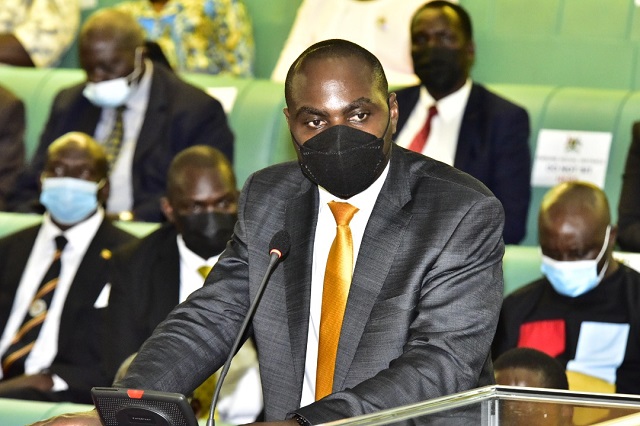
Kampala, Uganda | THE INDEPENDENT | Parliament has rejected the government’s proposed extension of the corporate income tax exemption for the Bujagali Hydro Power Project by 5 years. Parliament agreed to grant an exemption for only 1 year up to 2023.
The decision was taken on Wednesday during a debate on the Income Tax (Amendment) Bill, 2022.
According to the Bill presented by Henry Musasizi, the Minister of State for Finance- General Duties, the government proposed an amendment to Section 21 of the principal Act to extend the income tax exemption for Bujagali from 1st July 2022 to 30th June 2027.

Musasizi explained that the purpose of the proposed amendment was to reduce the average electricity tariff of Bujagali Hydro Power Project by 4.7 percent from US cents 10.62 per kilowatt-hour during the period.
He said that the previous 5-year tax holiday which was granted to Bujagali from 1st July 2017 to 30th June 2022, had an impact and reduced the project power tariff from an average of US cents 13.83 per kilowatt-hour to US cents 10.62 per kilowatt-hour.
Bujagali has in the past benefited from 15 years’ tax holiday and this was the third time that the government sought to extend the exemption.
However, during a debate MPs disagreed with the 5-year exemption after adopting a report by a few selected Members of Parliament led by Budadiri West MP, Nathan Nandala Mafabi.
The team had been asked by the House to come up with a harmonized position on the government proposal and that of Parliament’s Finance Committee that rejected another 5-year Corporate Income Tax waiver for Bujagali, noting that the explanations justifying the move were not satisfying.
Nandala said that the financial statements of Bujagali are misleading and that the computations are done in the wrong way leading to high tariff rates. He proposed that the status quo regarding Bujagali remain for a period of only one year.
Nandala said that parliament needs to save Ugandans from being cheated by investors.
Paul Omara, the Otuke County MP said that the agreement signed by the government with Bujagali was very unfair to Uganda given that the country is not benefiting.
Jane Pacuto Avur, the Finance Committee Vice Chairperson said that while the government is a majority shareholder of ordinary shares in Bujagali Electricity Limited, it has never received any dividend and it has no board member.
“Out of the 460,000 shares the Government owns 360,000. The value for each share of the Government classified as Class “C” is worth 100,000 Shillings yet the value for each share for the other shareholder classified as Class “A” has a value of a mere 100 Shillings.
Based on the Power Purchase agreement, Government is entitled to retained earnings also known as Return on Investment or equity for the shareholders of 19 percent,” Pacuto said.
The Speaker of Parliament Anita Among told the Attorney General, Kiryowa Kiwanuka that Uganda must have voting rights and inclusion on the Bujagali board since Uganda is the majority shareholder.
She gave the government 6 months to carry out a forensic audit and determine the value of money on Bujagali. The government will be expected to present this report by 1st January 2023 in order for parliament to scrutinize it within 3 months and come up with final recommendations in regard to Bujagali.
Parliament learned that the Power Purchase Agreement provides for Return on Government equity but Uganda does not receive any equity because the Agreement allocated no voting powers to Uganda, the main shareholder. However, other shareholders who are the minority receive their earnings.
Pacuto said that preference shares worth US Dollars 67,910, receive dividends every year, more than 70,000, 000 US Dollars per year. She said that for the last 4 years, from 2018 to 2021, retained earnings worth 3.61 trillion Shillings (US Dollars 950.91 million) have not been deposited in the Consolidated Fund.
Among constituted a select committee chaired by Dickson Kateshumbwa, the Sheema Municipality MP to work with the auditors to investigate operations of Bujagali.
*****
URN
 The Independent Uganda: You get the Truth we Pay the Price
The Independent Uganda: You get the Truth we Pay the Price




The electricity should be cheap in Uganda.